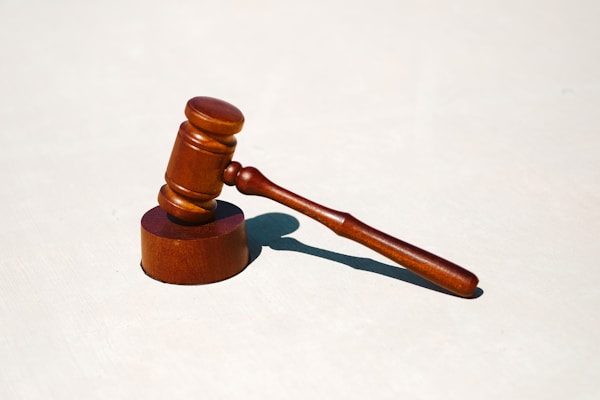If you have been arrested or charged with a criminal offence, you need to seek legal advice as soon as possible. A criminal defence lawyer can help you understand your rights and the criminal justice process and can represent you in court. When choosing a Calgary criminal lawyer, or a defence lawyer wherever you are located, consider their experience and skills, as well as their fees. Also, make sure that the lawyer is licensed to practice law in your province or territory.
The criminal law process in Canada is a long and complicated one, but it is important to understand if you or someone you know has been charged with a crime. Keep reading to learn more.
The criminal justice system in Canada is based on the principle that every person is innocent until proven guilty. This means that a person cannot be charged with a criminal offence unless the Crown Attorney has evidence that proves that the person committed the offence.
The police will investigate the offence and gather evidence. The police will then prepare a report on the investigation and submit it to the Crown Attorney. The Crown Attorney will then decide whether or not to lay charges against the person.
If the Crown Attorney decides to lay charges against the person, the person will be brought before a judge for a preliminary inquiry. The preliminary inquiry is a hearing to determine whether there is enough evidence to proceed with a trial. The person has the right to be represented by a defence lawyer at the preliminary inquiry. The person can also cross-examine witnesses and call witnesses on their behalf. If the judge decides that there is enough evidence to proceed with a trial, the person will be charged with a criminal offence and will have to go to trial.
During a criminal trial, the Crown will be responsible for providing disclosure to the defence, which is essentially all of the evidence that the Crown has in its possession. The defence will then have an opportunity to review the disclosure and determine whether there are any issues that require further investigation. If the defence feels that there are any issues that need to be addressed, it will file a motion with the court. The Crown will then have an opportunity to respond to the motion. If the motion is granted, the trial will be adjourned so that the defence can investigate the issues raised. If the defence is not granted the adjournment, the trial will proceed.
The sentencing for a criminal trial in Canada can be very complex. There are a variety of factors that the court will take into consideration when determining an appropriate sentence. Some of these factors include the severity of the offence, the criminal record of the accused, the circumstances of the offence, and the impact of the offence on the victim.
Generally, the court will impose a sentence that is fit and appropriate for the offence that has been committed. In some cases, the court may order a prison sentence, while in other cases, the court may order a probation order or a fine.
When sentencing an accused, the court must also take into consideration the Charter of Rights and Freedoms. This means that the court must consider the principles of proportionality, denunciation, deterrence, rehabilitation, and reparation. The court must also consider any aggravating or mitigating factors that are present in the case. Some aggravating factors that may be taken into consideration include the use of a weapon during the commission of the offence, the harm that was caused to the victim, and the fact that the offence was committed in front of a child. Mitigating factors include the fact that the accused has a mental illness, that the accused has a good character, and that the accused has pleaded guilty.
Once the court has considered all of the relevant factors, it will impose a sentence that is appropriate for the offence that has been committed.
If a defendant is found guilty or pleads guilty at trial, they may appeal the decision to a higher court. The person has the right to be represented by a lawyer at the appeal. The appeal court will review the case to determine if the lower court made any mistakes in its decision. If the appeal court decides that the lower court made a mistake, it may order a new trial or a different punishment.
Overall, the criminal law process in Canada ensures that those who commit crimes are held accountable for their actions. It also helps to protect the rights of those who have been accused of a crime and ensures that they are given a fair trial.
The criminal law process in Canada is a long and complicated one, but it is important to understand if you or someone you know has been charged with a crime. Keep reading to learn more.
Charge
The criminal justice system in Canada is based on the principle that every person is innocent until proven guilty. This means that a person cannot be charged with a criminal offence unless the Crown Attorney has evidence that proves that the person committed the offence.
The police will investigate the offence and gather evidence. The police will then prepare a report on the investigation and submit it to the Crown Attorney. The Crown Attorney will then decide whether or not to lay charges against the person.
Preliminary Inquiry
If the Crown Attorney decides to lay charges against the person, the person will be brought before a judge for a preliminary inquiry. The preliminary inquiry is a hearing to determine whether there is enough evidence to proceed with a trial. The person has the right to be represented by a defence lawyer at the preliminary inquiry. The person can also cross-examine witnesses and call witnesses on their behalf. If the judge decides that there is enough evidence to proceed with a trial, the person will be charged with a criminal offence and will have to go to trial.
Trial
During a criminal trial, the Crown will be responsible for providing disclosure to the defence, which is essentially all of the evidence that the Crown has in its possession. The defence will then have an opportunity to review the disclosure and determine whether there are any issues that require further investigation. If the defence feels that there are any issues that need to be addressed, it will file a motion with the court. The Crown will then have an opportunity to respond to the motion. If the motion is granted, the trial will be adjourned so that the defence can investigate the issues raised. If the defence is not granted the adjournment, the trial will proceed.
Sentencing
The sentencing for a criminal trial in Canada can be very complex. There are a variety of factors that the court will take into consideration when determining an appropriate sentence. Some of these factors include the severity of the offence, the criminal record of the accused, the circumstances of the offence, and the impact of the offence on the victim.
Generally, the court will impose a sentence that is fit and appropriate for the offence that has been committed. In some cases, the court may order a prison sentence, while in other cases, the court may order a probation order or a fine.
When sentencing an accused, the court must also take into consideration the Charter of Rights and Freedoms. This means that the court must consider the principles of proportionality, denunciation, deterrence, rehabilitation, and reparation. The court must also consider any aggravating or mitigating factors that are present in the case. Some aggravating factors that may be taken into consideration include the use of a weapon during the commission of the offence, the harm that was caused to the victim, and the fact that the offence was committed in front of a child. Mitigating factors include the fact that the accused has a mental illness, that the accused has a good character, and that the accused has pleaded guilty.
Once the court has considered all of the relevant factors, it will impose a sentence that is appropriate for the offence that has been committed.
Appeal
If a defendant is found guilty or pleads guilty at trial, they may appeal the decision to a higher court. The person has the right to be represented by a lawyer at the appeal. The appeal court will review the case to determine if the lower court made any mistakes in its decision. If the appeal court decides that the lower court made a mistake, it may order a new trial or a different punishment.
Overall, the criminal law process in Canada ensures that those who commit crimes are held accountable for their actions. It also helps to protect the rights of those who have been accused of a crime and ensures that they are given a fair trial.










.jpg)



.jpg)
.JPG)



Post a Comment